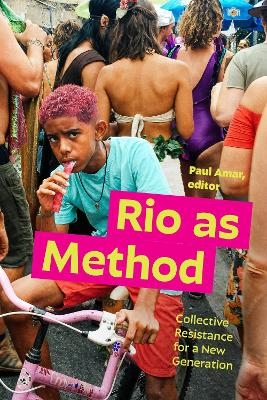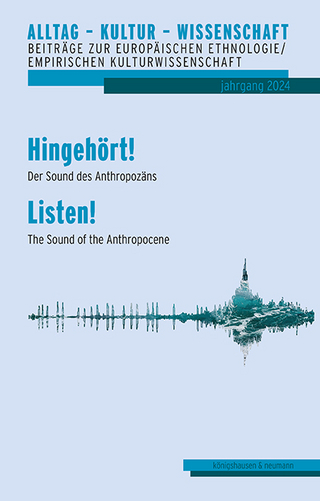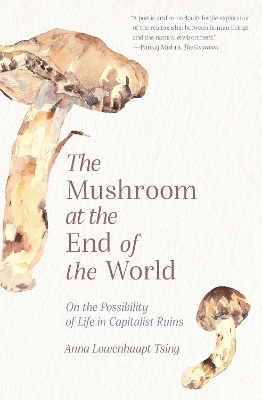
Rio as Method
Duke University Press (Verlag)
978-1-4780-3113-0 (ISBN)
Rio as Method provides a new set of lenses for apprehending and transforming the world at critical junctures. Challenging trends that position Global South scholars as research informants or objects, this Rio de Janeiro-based network of scholars, activists, attorneys, and political leaders center their Brazilian megacity as a globally relevant source for transformational world-making insights. Presenting this volume as a handbook and manifesto for energizing public engagement and direct action, more than forty contributors reconceive method as a politics of knowledge production that animates new ways of being, seeing, and doing politics. They draw on lessons from the city’s intersecting religious, feminist, queer, Black, Indigenous, and urbanist movements to examine issues ranging from state violence, urban marginalization, and moral panic to anticorruption efforts, paramilitary policing, sex work, and mutual aid. Rethinking theoretical and collaborative research methods, Rio as Method models theories of decolonial analysis and concepts of collective resistance that can be taken up by scholar-activists anywhere.
Contributors. Rosiane Rodrigues de Almeida, José Claudio Souza Alves, Tamires Maria Alves, Paul Amar, Marcelo Caetano Andreoli, Beatriz Bissio, Thaddeus Gregory Blanchette, Fernando Brancoli, Thayane Brêtas, Victoria Broadus, Fatima Cecchetto, Leonard Cortana, Marcos Coutinho, Monica Cunha, Luiz Henrique Eloy Amado, Marielle Franco, Cristiane Gomes Julião, Benjamin Lessing, Roberto Kant de Lima, Amanda De Lisio, Bryan McCann, Flávia Medeiros, Ana Paula Mendes de Miranda, Sean T. Mitchell, Rodrigo Monteiro, Vitória Moreira, Jacqueline de Oliveira Muniz, Laura Rebecca Murray, Cesar Pinheiro Teixeira, Osmundo Pinho, Paulo Pinto, María Victoria Pita, João Gabriel Rabello Sodré, Luciane Rocha, Marcos Alexandre dos Santos Albuquerque, Ana Paula da Silva, Denise Ferreira da Silva, Soraya Simões, Indianare Siqueira, Antonio Carlos de Souza Lima, Leonardo Vieira Silva
Paul Amar is Professor of Global Studies at the University of California, Santa Barbara, and author of The Security Archipelago: Human-Security States, Sexuality Politics, and the End of Neoliberalism, also published by Duke University Press.
Acknowledgments xi
Introduction: Methods and Concepts for a New Generation / Paul Amar 1
Part I. State
1. The Conquering State and Police War-ification / O Estado Conquistador e a Guerra-ficaçã de Policiamento? Community Collective Alternatives to the Police and Penal Economies of Pacification / Marielle Franco 25
2. Inquisitorial Model of Juridical Inequality / Modelo Inquisitorial de Desigualdade Jurídica: Recognizing the Persistence of the Colonial Inquisition Regime in Justice Procedure and Police Practice / Roberto Kant de Lima 43
3. Armed Dominions / Domínios Armados: The Fabrication of Insecurity and the Governance of Public Space by Criminal-Political Monopolies in Rio de Janeiro / Ana Paula Mendes de Miranda and Jacqueline de Oliveira Muniz 57
4. Rot Politics and the Cunning of Anticorruption / Política de Podridão e a Ardilexa da Anti-corrupção: The Polysemy of Corruption and the Emergence of a Cross-Class Right in Brazil / Sean T. Mitchell and Thayane Brêtas 68
5. Stateness / Estatalidade: Reconceptualizing Bureaucratic-Technical State Effects That Perform Agency, Governmentality, and Subjectivity / Ana Paula Medes de Miranda and María Victoria Pita 79
6. Recolonial Militiarchy / Milciarquia Recolonial: The Political Evolution of Organized Crime / José Claudio Souza Alves 90
7. Parastatal Sexarchy / Sexarquia Parastatal: Mitigated Regulation and Prostitution’s World Making / Thaddeus Gregory Blanchette and Ana Paula da Silva 98
8. Nonbinary Governance Epistemologies / Epistemologias de Governança Nãobinárias: Entangled Circuits of Violence, Grime, add Governmental Syncretism / Fernando Brancoli 111
9. Militianization / Milicianização: Dark Innovation at the State-Crime Frontier / Benjamin Lessing 125
Part II. Space
10. Elactivism / Vereativismo: Merging Contradictory Antistate Social Leadership Roles and Elected Councilwoman Position / Monica Cunha and Leonard Cortana 141
11. Analytics of Raciality / Analítica de Racialidade: Political-Symbolic Processes of Racial Power / Denise Ferreira de Silva 151
12. Black Brotherhood Urbanism / Urbanismo Confrarial Negro: Forms of Urban Expansion Designed by Mutual Aid Societies of Freedman and Slaves / Marcos Coutinho 164
13. Anti-White Patriarchal Ultramodernity / Ultramodernidad Anti-blancopatriarcal: Peripheral Dissent and Gender Battles in São Gonçalo / Osmundo Pinho 174
14. Quilombo Portness / Quilombismo Portuário: Living Memory and the Porousness of Racial Capitalism in Rio de Janeiro / João Gabriel Rabello Sodré and Amanda de Lisio 185
15. Fractalscopic Quotidian / Cotidiano Fractaloscópico: The Square as Social Project, the Social Project as a Space in Everyday Life / Marcelo Caetano Andreoli 199
16. Involved With as Police Method / Envolvido-com e Proximidade Punitiva: Selective Guardianship and Itinerant Controls in the Streets of Rio / Jacqueline de Oliveira Muniz, Fatima Cecchetto, and Rodrigo Monteiro 208
Part III. Subject
17. Pentecostal Repertoires and Narco-warfare Grammars / Repertórios Pentecostais e Gramáticas do Narco-Conflito: Fabricating and Inhabiting Religious-Criminal Subjects in an Urban Drug War / Cesar Pinheiro Teixeira 223
18. Genderphobic Binarism / Binarismo Gênerofóbico: The War against Gender as a Political Weapon / Vitória Moreira 234
19. Legal Limbo of Urban Indigeneity / Limbo Jurídico da Indigeneidade Urbana: Indigenous Mobilizations and the Traps of State Visibility / Marcos Alexandre do Santos Albuquerque 243
20. Terreiro Politics and Afro-religious Mobilizations: Política do Terreiro e Moblizações Afro-religiosas: Practices of Black Resistance against Christian Supremacism and Religious Racism / Rosiane Rodrigues de Almeida and Leonardo Vieira Silva 250
21. Kaleidoscopic Arabness / Arabitude Caleidoscópica: Performative Identities of Diasporic Arenas of Syrian-Lebanese Communities / Paulo G. Pinto 262
22. Decarceral Archetypes / Arquétipos Decarcerais: Rio de Janeiro as a Model Laboratory for the Abolition of Prison-Based Torture / Tamires Maria Alves 273
23. The Social Life of Corpses / Vida Social dos Mortos: Transcending Institutional Framings of Death in Rio de Janeiro / Flávia Medeiros 282
Part IV. Futurity
24. Travestirevolutionary Occupy Movements / Ocupações Possessórias Travestirevolucionarias: Solidarity Economies, Anticapitalist Housing Politics, and Nonbinary World Making / Indianare Siqueira 293
25. Reeixistence and “Villaging Up” / Re-existência e Aldeiamento: Indigenous and Anthropological Activist Praxis at Rio’s Nationa museum after Catastropic Fire and through the Bolsonaro Era / Antonio Carlos de Souza Lima, Cristiane Gomes Julião, and Luiz Henrique Eloy Amado
26. De-hygienization Clusivities / Clusivadades de De-higienização: Urban Renewal and Parastatal Power in Vila Mimosa / Thaddeus Gregory Blanchette, Soraya Simões, Laura Murray, Thayane Brêtas, and Ana Paula da Silva 312
27. Puta Politics / Putapolítica: The Innovative Political Theories and Protest Praxis of Putas / Laura Rebecca Murray 323
28. Heartbreaking Lyrical Ontology / Ontologia Lírica Comovente: Aldir Blanc and Popular Music as Guides to Carioca Modes of Being in the World / Bryan McCann, Victoria Broadus, and João Gabriel Rabello Sodré 334
29. Bandungian Futurities / Futuridades Bandungianas: A Future-Oriented Practice for South-to-South Solidarities / Beatriz Bissio 345
30. De-kill / De-matando: Black Mothers’ Epistemology of Violence and Mourning in Rio de Janeiro / Luciane Rocha 352
Contributors 363
Index 375
| Erscheinungsdatum | 28.09.2024 |
|---|---|
| Reihe/Serie | Dissident Acts |
| Verlagsort | North Carolina |
| Sprache | englisch |
| Maße | 152 x 229 mm |
| Gewicht | 445 g |
| Themenwelt | Sozialwissenschaften ► Ethnologie |
| Sozialwissenschaften ► Soziologie | |
| ISBN-10 | 1-4780-3113-1 / 1478031131 |
| ISBN-13 | 978-1-4780-3113-0 / 9781478031130 |
| Zustand | Neuware |
| Haben Sie eine Frage zum Produkt? |
aus dem Bereich


